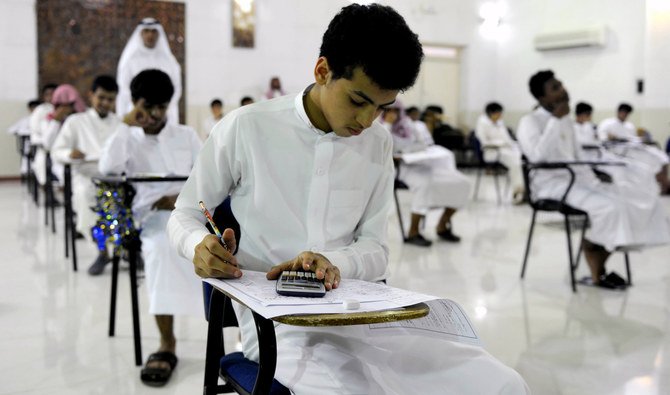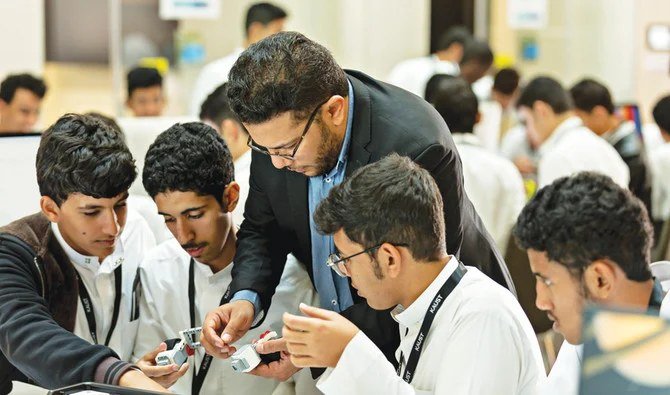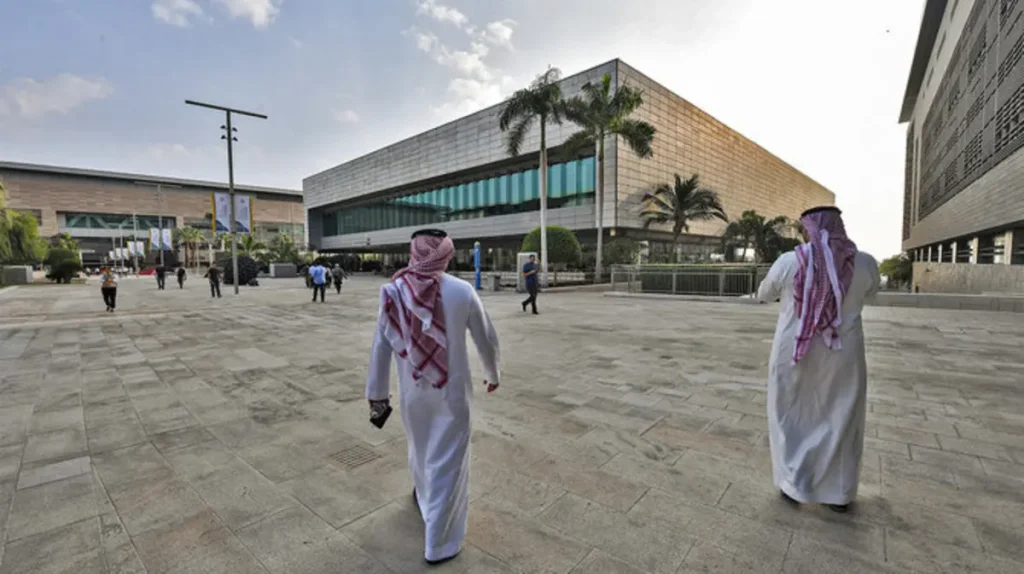Saudi Arabia higher education is at a crossroads. As the Kingdom races toward its ambitious Vision 2030 plan, the higher education system must transform quickly to prepare future generations. Without rapid and targeted reforms, the country risks falling short of its economic diversification goals, limiting opportunities for its young and dynamic population.
In this article, we explore why Saudi Arabia higher education must accelerate, the current challenges, and the urgent steps needed to support national development.
Vision 2030 and the Need for Change
Saudi Arabia’s Vision 2030 is a bold plan to transform the Kingdom’s economy, reduce dependence on oil, and create a vibrant society. A key pillar of this vision is developing human capital. In simple words, it’s about preparing Saudis to lead in various fields, from technology to healthcare to entrepreneurship.

However, Saudi Arabia higher education system has long been criticized for focusing too much on theory and not enough on practical skills. This misalignment has led to a large gap between graduates’ skills and labor market demands. If left unchecked, this gap will hinder the country’s ability to achieve its goals.
Current State of Saudi Arabia Higher Education
Heavy reliance on traditional learning
Most universities in Saudi Arabia still rely on traditional lecture-based teaching methods. While this approach has its benefits, it does not encourage creativity, critical thinking, or problem-solving skills. These are precisely the qualities needed to compete in today’s global economy.

Limited focus on research and innovation
Research output from Saudi universities remains low compared to global standards. Though investments in research are increasing, there is still a long way to go to build a strong research ecosystem that can drive innovation and economic growth.
Gender imbalance and inclusivity challenges
Saudi Arabia has made great strides in promoting women’s education and participation. Yet, challenges remain in ensuring equal opportunities and creating inclusive environments across all universities and fields.
High unemployment among graduates
Many Saudi graduates struggle to find jobs that match their degrees. This is often due to a mismatch between what is taught in universities and what industries actually need. This mismatch not only affects individuals but also slows down economic progress.
Why Rapid Reform Is Critical
Supporting economic diversification
Saudi Arabia cannot rely on oil revenues forever. To diversify, the country needs a workforce skilled in various modern sectors like technology, tourism, renewable energy, and entertainment. Saudi Arabia higher education institutions must adapt curricula to include these new areas.
Addressing youth bulge
Saudi Arabia has a young population, with around 70% under the age of 35. This is both an opportunity and a challenge. Without the right education and job opportunities, the country risks facing social and economic instability. Reforming higher education can help unlock this potential and turn it into a driver of growth.
Competing on a global scale
As Saudi Arabia opens up to the world, it aims to attract international businesses, host global events, and become a hub for innovation. To succeed, the country needs world-class universities that produce top talent. Rapid reforms can help Saudi universities climb global rankings and become more competitive.

What Needs to Change in Saudi Arabia Higher Education
Curriculum modernization
Curricula must be updated to focus on practical skills, critical thinking, and real-world problem-solving. Universities should work closely with industries to understand the skills needed and ensure graduates are job-ready.
Greater focus on research and development
Increasing funding and support for research is essential. Saudi Arabia should encourage faculty and students to engage in cutting-edge research that addresses national and global challenges. Partnerships with international universities and research centers can also boost capabilities.
Stronger emphasis on STEM fields
Science, Technology, Engineering, and Mathematics (STEM) are critical for future growth. By promoting STEM education and making it more accessible and attractive to students, Saudi Arabia can build a solid foundation for innovation-driven sectors.
Encouraging entrepreneurship and innovation
Universities should create more incubation centers, innovation hubs, and startup support programs. Encouraging students to launch their own businesses and think creatively will contribute to economic diversification.
Improving teacher training and faculty development
Faculty members are the backbone of any education system. Continuous training, exposure to international best practices, and performance evaluations can help improve teaching quality across the board.
Enhancing inclusivity and accessibility
More needs to be done to ensure that higher education is inclusive of all genders, people with disabilities, and students from different regions. Scholarships, mentorship programs, and support services can help bridge gaps.
The Role of Technology in Accelerating Change
Digital transformation is reshaping education worldwide. Saudi Arabia higher education institutions must leverage technology to deliver better learning outcomes.
E-learning and blended learning
The COVID-19 pandemic highlighted the importance of online learning. Saudi universities can adopt blended learning models that combine in-person and online education, providing flexibility and access to more students.
AI and data-driven education
Using artificial intelligence and data analytics can help personalize learning, identify gaps, and improve student performance. Smart classrooms and virtual labs can also enhance practical skills training.
Expanding global collaborations
Technology enables universities to collaborate with top institutions worldwide. Joint programs, online guest lectures, and virtual exchanges can expose students to global perspectives and best practices.
Government Initiatives and Policies
The Saudi government recognizes the importance of education reform and has launched several initiatives under Vision 2030. Some key examples include:
Human Capability Development Program (HCDP), which aims to equip citizens with the skills needed for future jobs and improve lifelong learning
Scholarship programs that send students abroad to gain experience and bring back knowledge
Private sector partnerships that encourage collaborations between universities and industries to align education with labor market needs

While these efforts are commendable, implementation must be faster and more widespread to achieve the desired impact.
Case Studies and Success Stories
King Abdullah University of Science and Technology (KAUST)
KAUST stands as a model for research-focused higher education. Its emphasis on innovation, global partnerships, and advanced facilities shows what is possible when vision meets execution.
Princess Nourah bint Abdulrahman University
The world’s largest women’s university is a symbol of Saudi Arabia’s commitment to empowering women. By offering diverse programs and encouraging entrepreneurship, it helps build a more inclusive future.
Challenges to Overcome
Despite progress, several obstacles hinder rapid reform:
Resistance to change among faculty and administrators can slow reform efforts
Funding limitations, as some universities still lack resources for large-scale transformation
Quality assurance challenges, since rapid expansion must not come at the cost of quality
Alignment with industry needs stronger mechanisms to involve industry experts in curriculum design and evaluation
A Roadmap for the Future
To transform Saudi Arabia higher education into a global leader and an engine for economic growth, a comprehensive roadmap is necessary. Key steps include:
Define clear national educational priorities linked directly to Vision 2030 goals
Encourage flexible learning paths to allow students to mix disciplines and acquire diverse skills
Invest heavily in faculty development and research infrastructure
Promote partnerships with leading global universities and industries
Implement rigorous monitoring and evaluation to track progress and ensure accountability
Conclusion: Reform Is Not Optional — It Is Urgent
Saudi Arabia higher education system is critical to achieving a diversified, innovative, and prosperous future. While the journey has already begun, the pace must be faster, the reforms deeper, and the commitment stronger.
By modernizing curricula, embracing technology, focusing on research, and fostering an inclusive environment, Saudi Arabia can equip its youth with the skills and mindset to lead the country into a bright and sustainable future.
The time for transformation is now. Reforming Saudi Arabia higher education is not just an option. It is an urgent necessity for national development and global competitiveness.
Follow us on Instagram: UAE STORIES
Read More: Why I Feel Spiritually Lost After Moving to the UAE












